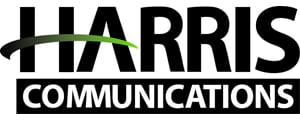Understanding the Early Signs of Dementia: A Guide for Seniors and Caregivers
Dementia is an umbrella term for a range of progressive conditions affecting brain function, including Alzheimer’s disease and other types of neurodegenerative diseases. It is characterized by the deterioration of cognitive abilities, which can significantly impact a person’s daily life and their ability to remain independent. For seniors and the caregivers who support them, recognizing the early signs of dementia is crucial for seeking timely intervention and managing the condition effectively. This guide is designed to help you understand and identify these initial indicators, providing you with actionable advice to address concerns as they arise and prepare for the road ahead.
Introduction:
As the global population ages, dementia has emerged as a pressing health concern. It can be a frightening prospect for seniors and their families, often evoking feelings of uncertainty and helplessness. However, catching dementia early can lead to better outcomes, as some treatments are more effective when started early, and strategies can be employed to slow the progression and improve quality of life.
Understanding the early signs of dementia requires a keen eye and a compassionate approach. This guide outlines key indicators and provides guidance for seniors and caregivers to navigate this challenging landscape. By remaining vigilant and informed, you can take essential steps toward managing dementia with dignity and purpose.
Memory Loss Affecting Daily Activities
- Frequent forgetting of recently learned information
- Keep a daily journal to track any persistent lapses in memory.
- Asking the same questions repeatedly
- Create a question log where repeated questions are noted.
- Difficulty recalling important dates or events
- Use a digital calendar with alarms and reminders for events and appointments.
- Forgetting to take medications or attending appointments
- Establish a routine for medication using a pill organizer or a medication management app.
- Relying on memory aids or family members more than before
- Integrate more memory aids, such as sticky notes around the house for common tasks.
- Misplacing items frequently and being unable to retrace steps
- Designate specific spots for regularly used items like keys and glasses.
- Trouble remembering names or the right words for items
- Practice word retrieval exercises or use visual cues to help remember names and terms.
Challenges in Planning or Solving Problems
- Struggling with following a plan, such as a recipe or directions
- Encourage the use of detailed step-by-step guides or GPS for directions.
- Difficulty working with numbers or handling bills
- Utilize tools like automated bill payments and basic calculators for finances.
- Taking much longer to do things than before
- Break tasks into smaller, manageable steps and focus on one at a time.
- Trouble concentrating on complex tasks
- Minimize distractions in the environment when engaging in tasks that require focus.
- Becoming easily frustrated when things go awry
- Implement stress-reduction techniques such as deep breathing exercises.
- Avoiding activities that were once routine
- Provide encouragement and support to maintain a routine and stay engaged.
- Inability to follow the rules of a familiar game
- Choose simpler games that rely on pattern recognition rather than complex rules.
Difficulty Completing Familiar Tasks
- Trouble driving to a familiar location
- Suggest familiar routes and consider the use of GPS technology.
- Forgetting how to manage a budget or balance a checkbook
- Introduce financial management software that can simplify these tasks.
- Needing help with using gadgets or household appliances
- Label appliances with step-by-step instructions for use.
- Struggling with daily tasks like dressing appropriately for the weather
- Lay out clothes the night before, taking into consideration the weather forecast.
- Inability to create or stick to a daily plan
- Develop a structured daily routine and use visual schedules.
- Forgetting the rules of a game or sport they used to play often
- Play games that are less reliant on complex rules and more on enjoyment.
- Experiencing confusion in understanding TV shows or books
- Switch to programs or books that are more straightforward and less complex.
Confusion with Time or Place
- Losing track of dates and seasons
- Keep a visible and updated calendar in an easily accessible location.
- Forgetting where they are or how they got there
- Use a GPS tracking device that can help determine their location.
- Trouble understanding events that are not happening immediately
- Focus on discussing events that are occurring in the present.
- Difficulty comprehending something if it is not happening right now
- Utilize visual aids or objects to explain concepts or events.
- Forgetting the day of the week but figuring it out later
- Provide digital clocks that display the date and day of the week.
- Confusion about the current season
- Decorate the living environment according to the current season to provide cues.
- Mixing up the passage of time, such as thinking something from 20 years ago happened recently.
- Gently remind them of the current date and relate past events to the present contextually.
Trouble Understanding Visual Images and Spatial Relationships
- Difficulty reading
- Use large-print books or adjust the font size on digital devices.
- Problems judging distance and determining colour or contrast
- Apply color-coded and contrast-enhanced tape on steps or edges to indicate changes in height.
- Struggling with balance or spatial awareness
- Keep the living space clutter-free to reduce the risk of falls.
- Increased trouble with driving
- Schedule regular eye check-ups and consider alternate transportation options.
- Misinterpreting reflections or mistaking objects for people
- Explain reflections and reassure them about the true nature of the images they’re seeing.
- Difficulty engaging in hobbies that require fine motor skills
- Modify hobbies to accommodate changes in visual-spatial abilities.
- Trouble navigating a familiar environment
- Redesign the environment to make it more navigable and intuitive.
New Problems with Words in Speaking or Writing
- Stopping in the middle of a conversation
- Reassure them it’s okay to take their time and give them time to express themselves.
- Struggling to find the right word
- Suggest using synonyms or describing the function of the item when they can’t recall the specific word.
- Repeating themselves during conversations
- Politely acknowledge what they’ve said and gently steer the conversation forward.
- Writing becomes less precise or coherent.
- Provide tools such as talk-to-text functions on devices or encourage verbal communication instead.
- Difficulties with vocabulary, such as calling things by the wrong name
- Create a supportive environment that does not focus on correcting mistakes.
- Difficulty following or joining a conversation
- Keep conversations clear and simple, and include them in discussions gently.
- Losing a train of thought or struggling with explanations
- Encourage conversations about familiar topics and recount personal stories or experiences.
Misplacing Things and Losing the Ability to Retrace Steps
- Losing personal belongings frequently
- Establish a ‘home’ for frequently used items like wallets or glasses.
- Putting things in unusual places
- Organize the home environment with clear and consistent labelling.
- Difficulty retracing steps to find lost items
- Encourage a methodical approach to looking for lost items.
- Accusing others of stealing when unable to find something
- Respond with empathy and assist in the search without taking offence.
- Significant disorganization or clutter
- Implement regular decluttering and use simple organizational systems.
- Losing valuable items or important documents
- Create a secure designated spot for valuables and important papers.
- Forgetting about the locations of frequently visited places
- Discuss and rehearse the routes to familiar places together.
Decreased or Poor Judgement
- Making questionable decisions with money
- Oversee financial decisions and suggest setting up safeguards against scams.
- Paying less attention to personal grooming and cleanliness
- Establish a daily routine that includes personal hygiene tasks.
- Showing poor judgment in social interactions
- Coach them on appropriate social behaviour and set up social rules or cues.
- Difficulty recognizing safety risks
- Regularly review safety practices and ensure that the living space is secure.
- Ignoring important medical issues
- Manage medical appointments and advocate for their healthcare needs.
- Making unusual choices in clothing for the weather or occasion
- Plan clothing choices together and discuss the appropriateness of the day’s activities.
- Forgetting to attend to household maintenance
- Create a checklist for regular home maintenance tasks or hire professional help.
Point 9: Withdrawal from Work or Social Activities
- Aversion to socializing or engaging with friends
- Encourage participation in social activities they previously enjoyed at a comfortable pace.
- Skipping work or social obligations
- Offer reminders and support for maintaining social and professional responsibilities.
- Loss of interest in hobbies or sports
- Find new activities or hobbies that align with their current abilities and interests.
- Choosing isolation over being with family and friends
- Create a warm and inviting atmosphere for interaction without force.
- Avoiding favorite pastimes
- Modify favourite pastimes to accommodate new skill levels and interests.
- Seeming out of touch during social gatherings or meetings
- Provide subtle prompts and cues to help them stay engaged during events.
- Reluctance to try new things or engage in previously enjoyed experiences
- Introduce new experiences gradually, starting with similar and familiar activities.
Changes in Mood and Personality
- Becoming confused, suspicious, depressed, fearful, or anxious
- Offer support and understanding, and consider professional counselling if necessary.
- Easily upset at home, work, with friends, or in places outside their comfort zone
- Maintain a routine and a calm environment to minimize stress triggers.
- Noticeable shifts from their usual demeanour to agitation or apathy
- Be patient and provide reassurance and comfort in times of distress.
- Becoming more irritable or easily frustrated
- Identify and address potential sources of frustration and offer solutions.
- Experiencing mood swings for no apparent reason
- Keep a mood diary to track patterns and possible triggers for mood changes.
- Particularly reactive to minor changes in routine or environment
- Prepare them in advance for changes and offer clear explanations for any adjustments.
- Developing very fixed routines and becoming distressed with disruptions
- Accommodate their need for routine while gently introducing small variations to build flexibility.
Conclusion
Recognizing the early signs of dementia is a step toward understanding and adapting to the changes that a senior or caregiver might face. It is important to approach these signs with empathy, patience, and a readiness to seek professional advice. By being observant and proactive, you can ease the challenges of dementia and enhance the quality of life for everyone involved. Keep in mind that each individual is unique, and so is their experience with dementia. Tailoring your approach to fit their specific needs and preferences can make a world of difference.
If you’ve noticed some of these signs and you’re seeking guidance or support, we’re here to help you navigate this journey. For more information, personalized advice, or to access resources related to dementia care, don’t hesitate to reach out.
- Name: SMPL Technology
- Phone: 833.237.4675 ext. 1,
- Email: support@smpltec.com,
- Website: smpltec.com.
“Empowering Seniors and Caregivers: Together, we can navigate the challenges of dementia.”
Frequently Asked Questions (FAQ)
-
A1: Early signs include memory loss that disrupts daily life, difficulty planning or solving problems, trouble completing familiar tasks, confusion with time or place, and changes in mood or personality, among others.


















